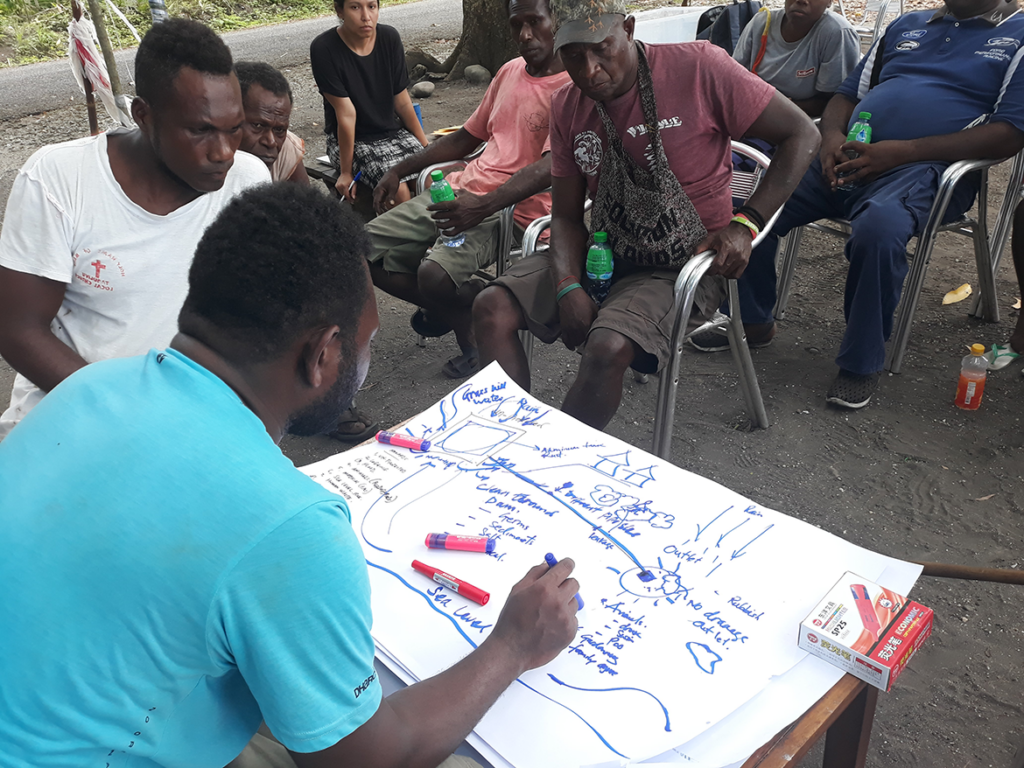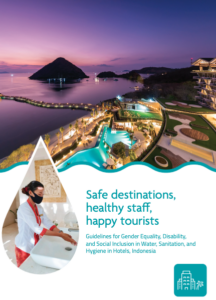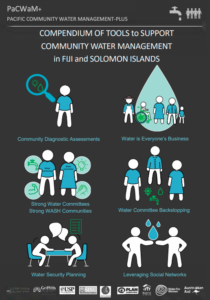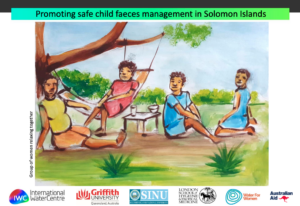
- Research project
- – Western Pacific
At IWC, our approach to research has always been collaborative, transdisciplinary, and based on a partnerships. We focus on producing outputs that are relevant to the governments and practitioners with whom we work. While we also publish our research in top-tier academic journals, we work hard to ensure that research doesn’t get buried within the academic community but is accessible and in formats that can be easily used, shared, replicated, and applied in practical ways in the water, sanitation and hygiene (WASH) sector.
The end of 2022 marks a significant milestone for our IWC applied research team, with three of our largest research programmes, funded under the Department of Foreign Affairs and Trade’s flagship WASH program the Water for Women fund, are reached completion. These projects span from Indonesia to Fiji and all countries in between, and with a collection of academic partners that include the University of Udayana (UU, Indonesia), Institute of Technology Bandung (ITB, Indonesia), University of the South Pacific (Fiji and Vanuatu), and the Solomon Islands National University (Solomon Islands). They also involve numerous partnerships with government departments, private sector actors, non-government organisations, and rural and urban communities. The evidence, knowledge products and tools generated by these project have reached numerous academic and non-academic audiences.
So, if you have a current focus on rural water safety planning, engaging corporate actors in WASH, or sanitation for young children, we have a tool for you!

After a detailed formative research stage, the IWC, UU and ITB project team worked together with hotels, resorts, all levels of government and women’s and disabled persons’ organisations to co-develop guidelines. Multiple sets of Guidelines have been developed for different audiences including:
Tools were produced in local language as relevant, with Bahasa Indonesia versions and community education posters produced in Fijian, and are now housed not only on IWC’s website, but also on local government and tourism association websites.

An important approach to water services, particularly in the Asia Pacific region, has been the community water management (CWM) model. However, globally evidence suggests that most communities struggle to manage water services, without any support, and to achieve sustainable, resilient and inclusive ones. The community water management plus (CWM+) model is considered a viable improvement to the basic CWM model (Baumann, 2006; Hutchings et al., 2015, 2017). Following the establishment of any necessary water infrastructure and community water management, the CWM+ model includes long-term support from external organisations and / or people in a way that augments CWM.
Previous CWM+ research has identified a range of generic intrinsic and extrinsic factors that influence ‘good’ CWM outcomes (Hutchings et al., 2015; World Bank, 2017). However, the unique context of Pacific Island Countries (PICs) required rigorous place-based evidence about which approaches are most feasible and effective in the region. The Pacific Community Water Management Plus (PaCWaM+) research sought to identify what the ‘plus’ factors might look like in two PICs, Fiji and Solomon Islands, by asking what type of support is needed by communities, and how that support might be achieved. Later stages of the research focused on further exploring – and where possible piloting – some potential supporting approaches and tools, which are documented in our PACWAM+ compendium.

Community-led total sanitation (CLTS) is an approach commonly used to address and reduce open defecation across the Pacific, including as part of the rural sanitation policy in the Solomon Islands. However, here, as in many CLTS programs, the management of sanitation for young children and infants (less than 5 years old) is a gap. We addressed this gap by considering the behaviour change challenge of motivating the parents of young children to choose safe and gender-equitable methods of child-faeces management in rural contexts. We found the strongest motivator for parents tends to be related to nurturing and caring for their children, and so we used this to design and pilot several activities including a role play and motivational video that can be used by CLTS implementers. In a controlled trial, we found the tools and activities to promote an increase in understanding and desire to chose safe and equitable options, and that implementers could see the relevance and applicability of the tools to their existing program of works. The toolkit is freely available here, including this video which uses real-life testimonials from parents in rural Solomon Islands to describe why they practice safe CFM with their children.
